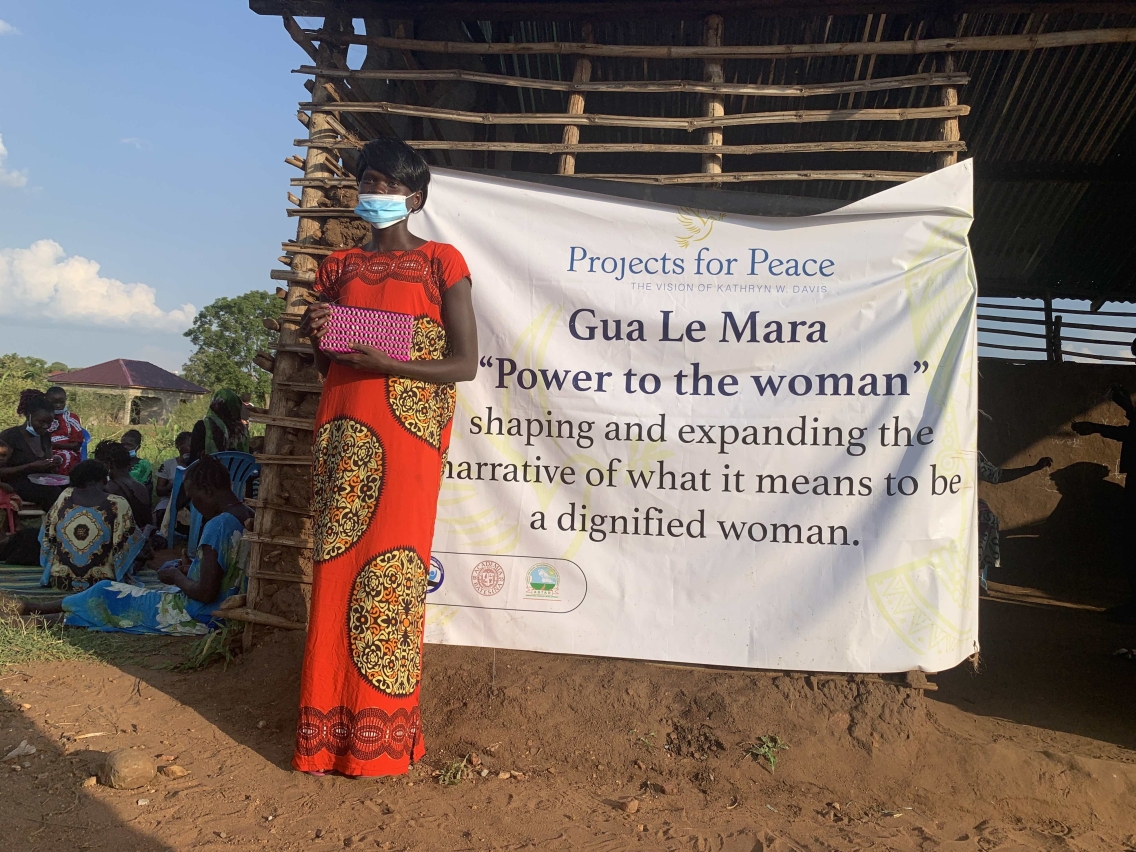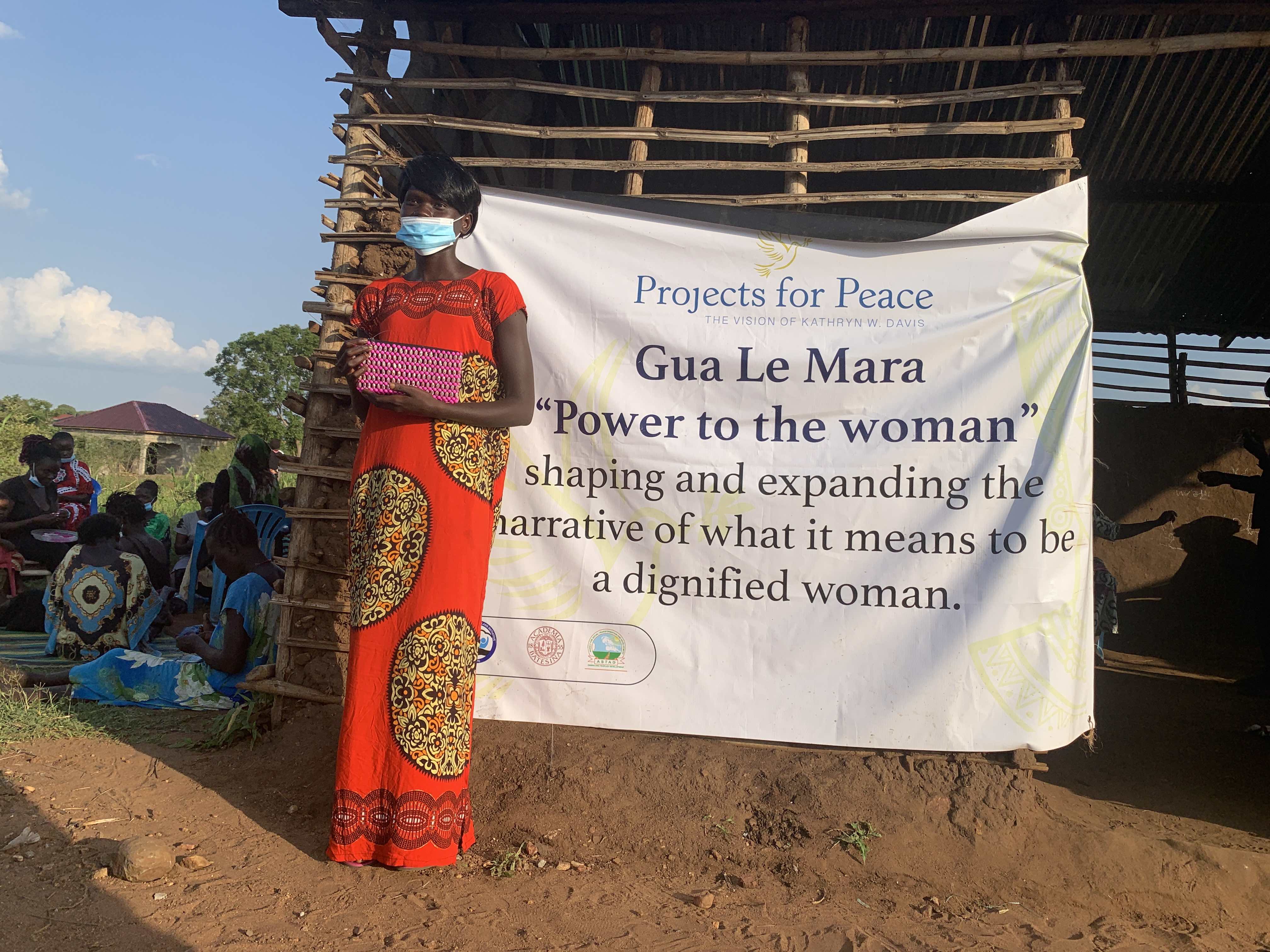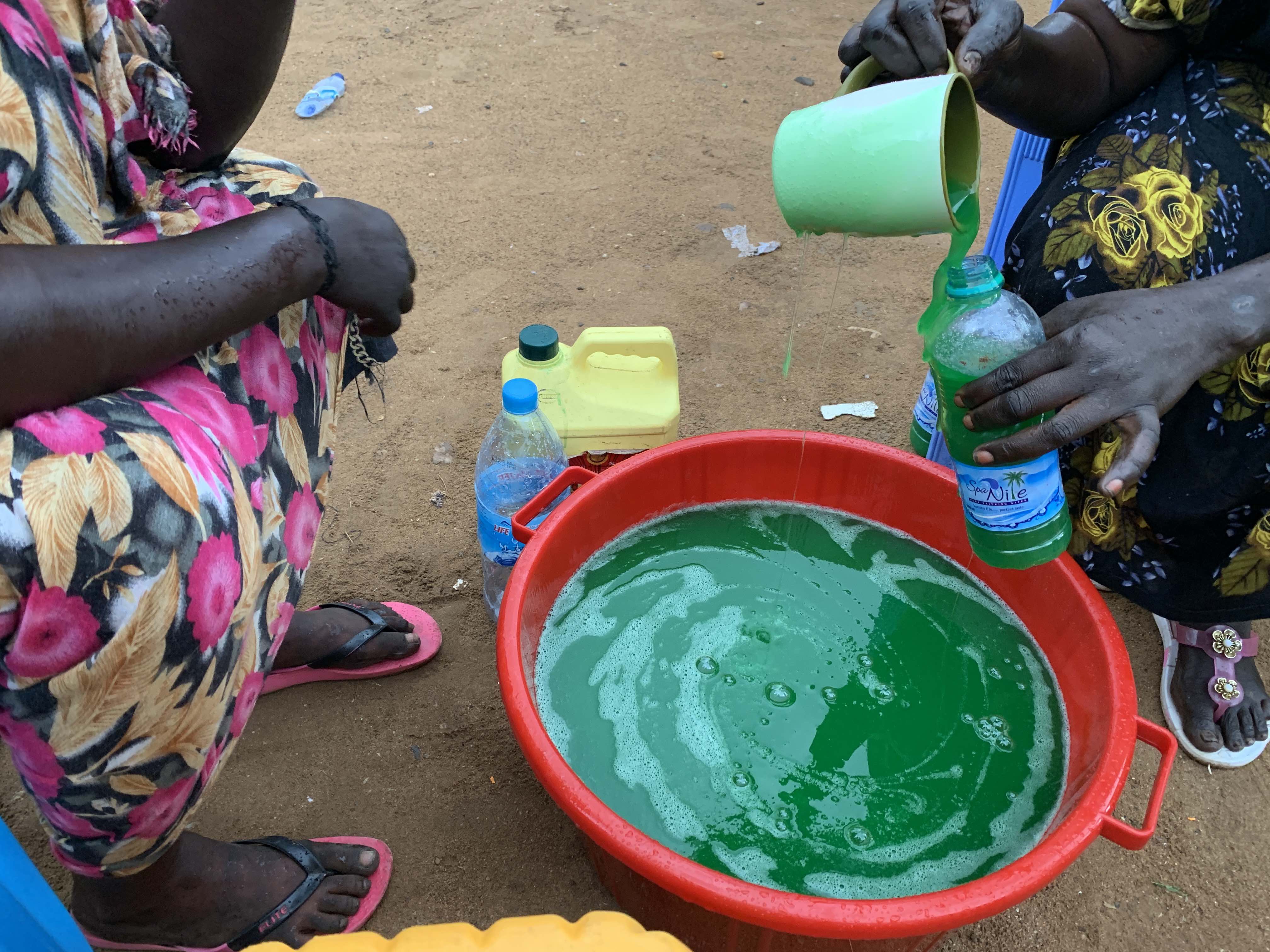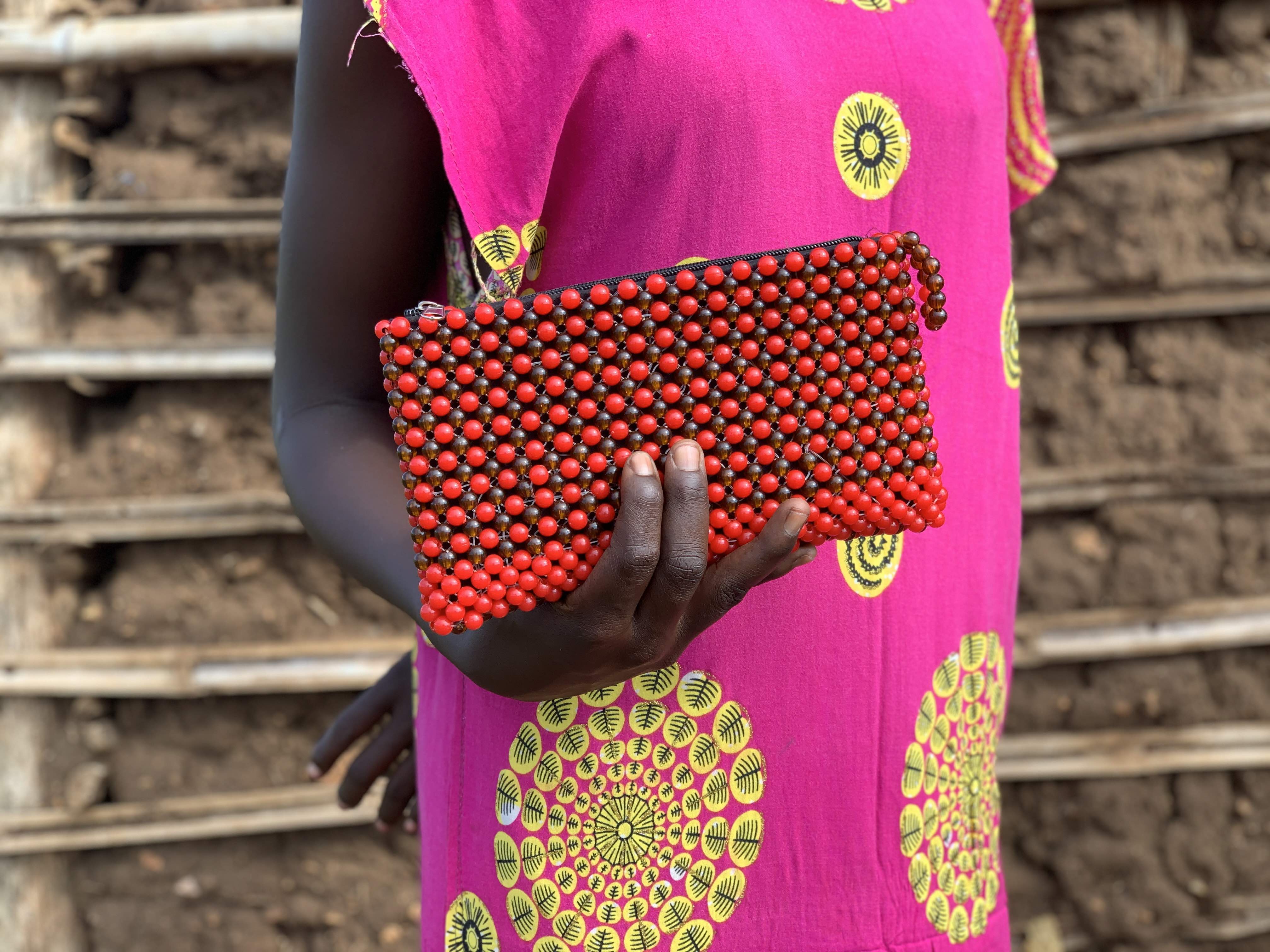Building Economic Agency for Women
Funded Projects, Partner Institutions, Africa, Equipment & Infrastructure, Human Rights & Justice, Livelihoods
The following profile is drawn from our 2021 Annual Viewbook, a report celebrating grantees, their projects, and the history of Projects for Peace. To read the full Viewbook, click here.
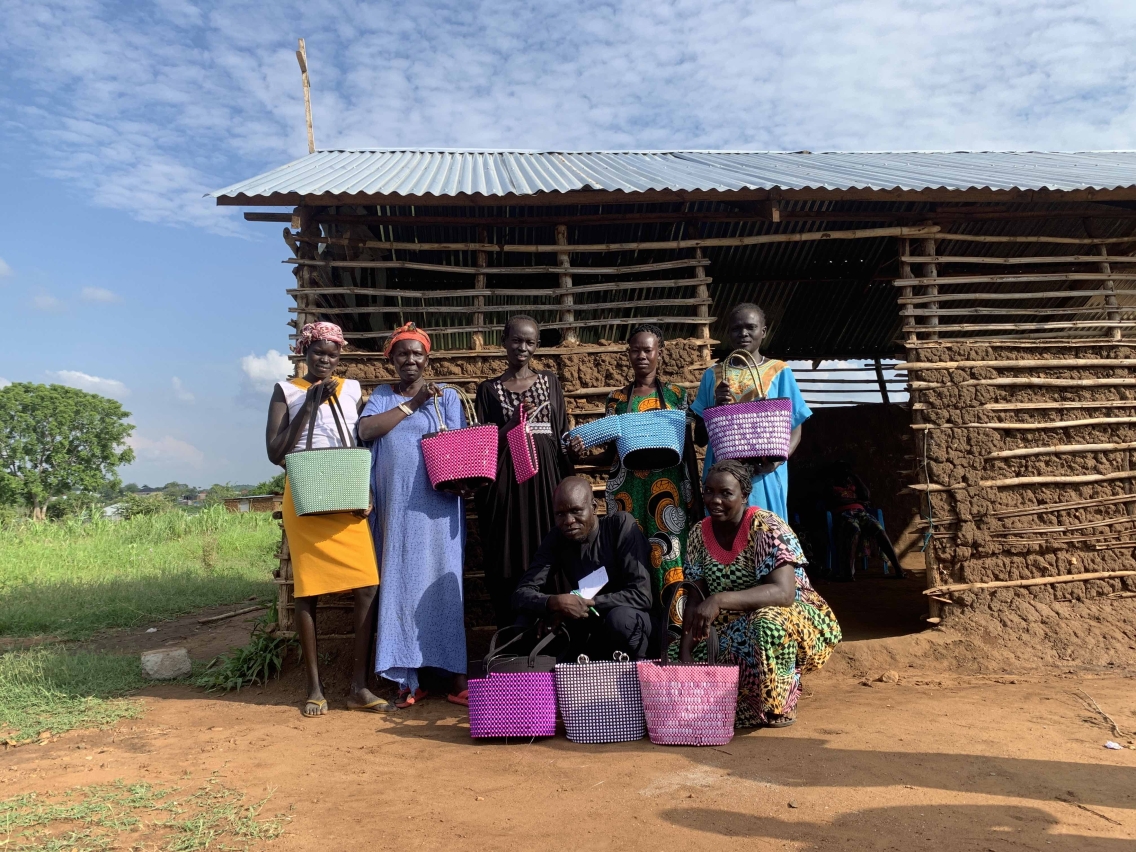
Grace Sandia Taban was concerned about the limitations society can place on women in her home country of South Sudan. She designed a project for women to learn skills that in turn could help them establish economic agency. Her approach was to teach women in two South Sudanese communities how to make beaded bags and soap to help them see related business opportunities, all the while holding conversations on ways to reduce gender-based violence.
Growing up in a patriarchal society, peace for me means seeing women equally contributing in the
spaces they occupy….Peace is allowing everyone to define the table before even getting a seat at it.
Writing about why she developed her project, Sandia Taban notes “Gua Le Mara was inspired by the need to improve the quality of life of an average South Sudanese woman that reduces dependence on gendered roles or their partners.” She goes on to point out that this work fits into an overall hope of hers to counteract “the constant narrative on mainstream media of South Sudan as a failed state due to the continued ethnic conflicts since its independence in 2011,” an approach that fails to address the humanity of average Sudanese citizens simply trying to build a life.
Sandia Taban and her team successfully carried out the project in two communities. Reflecting on the experience, she writes that Sudanese women’s “self-efficacy is crucial towards sustainable peace because it allows them to fully contribute to the growth of their local communities. It gives women a voice beyond their household roles, and helps counteract societal restraints regarding contributions women can make outside the home.”


